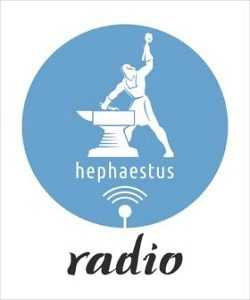EU telecom associations have criticised the course pursued by negotiators on the Gigabit Infrastructure Act, saying the text will allow the speeding up of telecom infrastructure roll-out but will have a minimal impact due to shrinking returns on investments.
The Gigabit Infrastructure Act is an EU bill accelerating high-capacity network deployment throughout the Union. A political agreement was reached on 6 February, which now has to be rubber-stamped by the two co-legislators, the Council of the EU and the European Parliament.
“The GIA is likely to have minimal direct effect [on infrastructure roll-out], as operators are already experiencing a phase of diminishing returns [on investments],” Telecom Paris academic Gérard Pogorel told Euractiv.
Tacit approval
He and telecom legal expert Innocenzo Genna consider that the four-month deadline introduced for permit-granting procedures is an improvement for telecom infrastructure deployment.
“Procedures are still heavy and lengthy in certain [EU] states,” or are still not digitised at all, Pogorel told Euractiv.
Yet, this four-month period, pushed by EU countries when MEPs suggested two months, has been set so as not to put too much pressure on administrative authorities, Genna said.
With the same reasoning, EU countries set a red line of not implementing a mandatory tacit approval principle in the text, which in the case of an authority not responding to a request for permit granting, the absence of an answer would be treated as authorisation.
In both cases, EU countries were concerned that squeezing deadlines for permit granting procedures might infringe on the rights of private building owners, who might be forced to allow the building to be used for the roll-out of telecom infrastructures.
“In Europe, property right is a strong element of continental law that is difficult to challenge, as evidenced by the rejection of tacit approval,” commented Pogorel.
For Genna, rejecting the principle is a “missed occasion”, while the telecom association ETNO equally regretted the “dilution of crucial measures” in the compromise text.
Intra-EU communications
“The Council was against the intra-EU communication surcharge abolition, but it preferred defending national administrative procedures diverging from the tacit approval principle,” Genna analysed.
The deal sets out a gradual phase-out of fees paid by EU citizens when calling or sending a text from home in another EU country. On 1 January 2025, operators will be able to compete below the price cap (0.19€/min for a call, 0.06€/SMS) and as of 1 January 2029, price caps will be abolished.
Acknowledging that this decision will come at a cost for operators, Pogorel said that “In Europe, [things] that work is the freedom of movement, the euro, and the ability to communicate seamlessly. The abolition of surcharges on intra-EU communications is important politically”.
Indeed, the abolition was a political priority for MEPs, which unanimously supported the provision by Renew’s MEP and rapporteur Alin Mituța.
Considering that the GIA’s original aim was to grant access to passive telecom infrastructures, Genna considered that this provision “has nothing to do with [the original] scope”.
Moreover, the regulation of wholesale costs might “result in an increase of domestic price,” he said.
From the Parliament’s view, the GIA was a way to tackle “loopholes in the [2017 EU roaming regulation],” Greens MEP and shadow rapporteur Niklas Nienaß told Euractiv.
Scope
While fibre networks are passive infrastructures that telecom operators operate themselves, bitstream access is an active infrastructure managed by a third-party, which takes care of maintenance operations.
In Genna’s view, “the bitstream access clauses are inconsistent with the GIA’s philosophy to give access to passive infrastructures”.
For the German broadband association BREKO “interventions by the German government [have] ensured that the GIA does not contain any regulations that would further exacerbate the acute problem of the strategic duplication of fibre networks”.
Yet, for Genna, the bitstream access clause shows that some governments “are unable to apply in their market the European Electronic Communications Code concerning access to ducts,” lamenting that because of this clause, the GIA’s scope to grant access to passive infrastructure became “incoherent,” as bitstream access is an active infrastructure.
Speculative behaviours
On the specific provisions set to land aggregators, who buy or rent land where telecom infrastructure is built, mainly in the case of 5G tower masts, Pogorel recalled that there was a “precedent of speculative behaviour on gas pipeline networks,” suggesting that the land on which 5G tower masts are built could be protected using the “essential facility label” in order to defend them against monopolistic behaviours.
Technology complementarity
Reflecting on the EU’s objective to reach 100% of 5G and fibre coverage by 2030 for EU citizens, Pogorel said that technology complementarity will be an enabler.
“The Gigabit Infrastructure Act is likely to have minimal direct impacts because operators are already experiencing diminishing returns on investments. However, the technology complementary allows progress towards high-speed internet for all by building towers where conventional infrastructure is too costly and utilising satellite connectivity where towers are too expensive,” concluded Pogorel.
Next steps
The compromise text will be tabled in an industry, research and energy committee meeting at the European Parliament on 22 February and in Coreper at the Council of the EU on Friday (16 February).
[Edited by Alice Taylor]
Source: Euractiv.com















Leave a comment